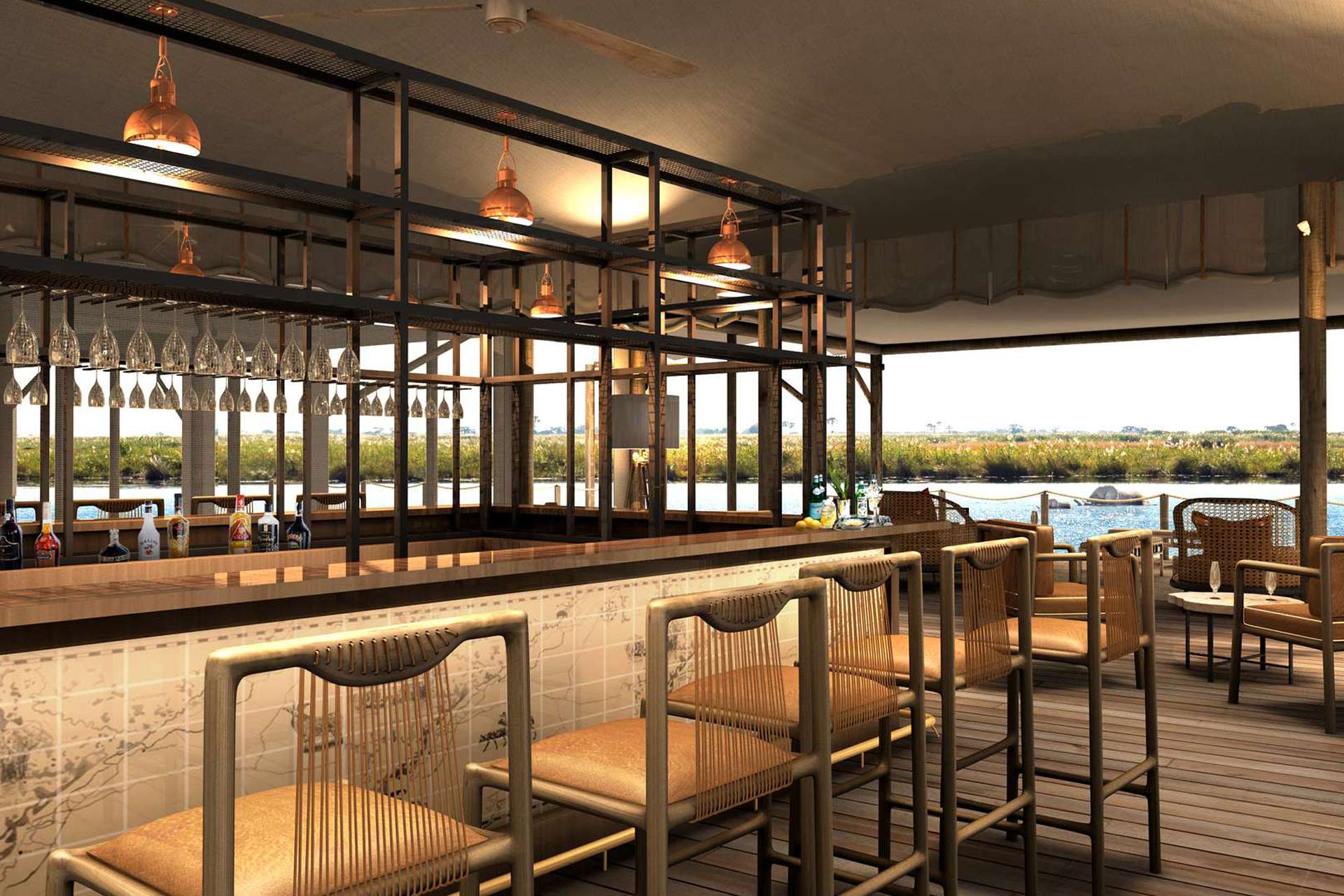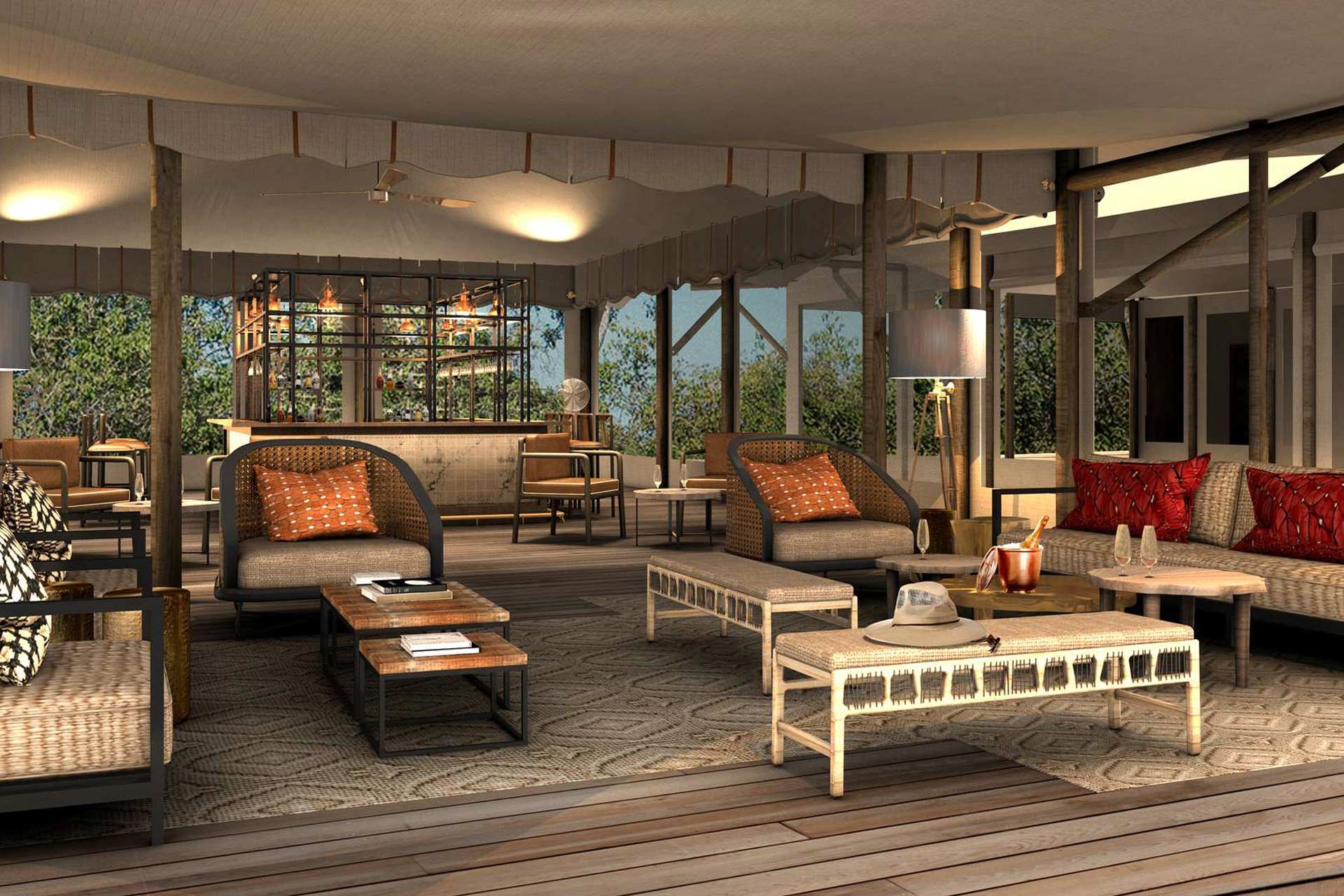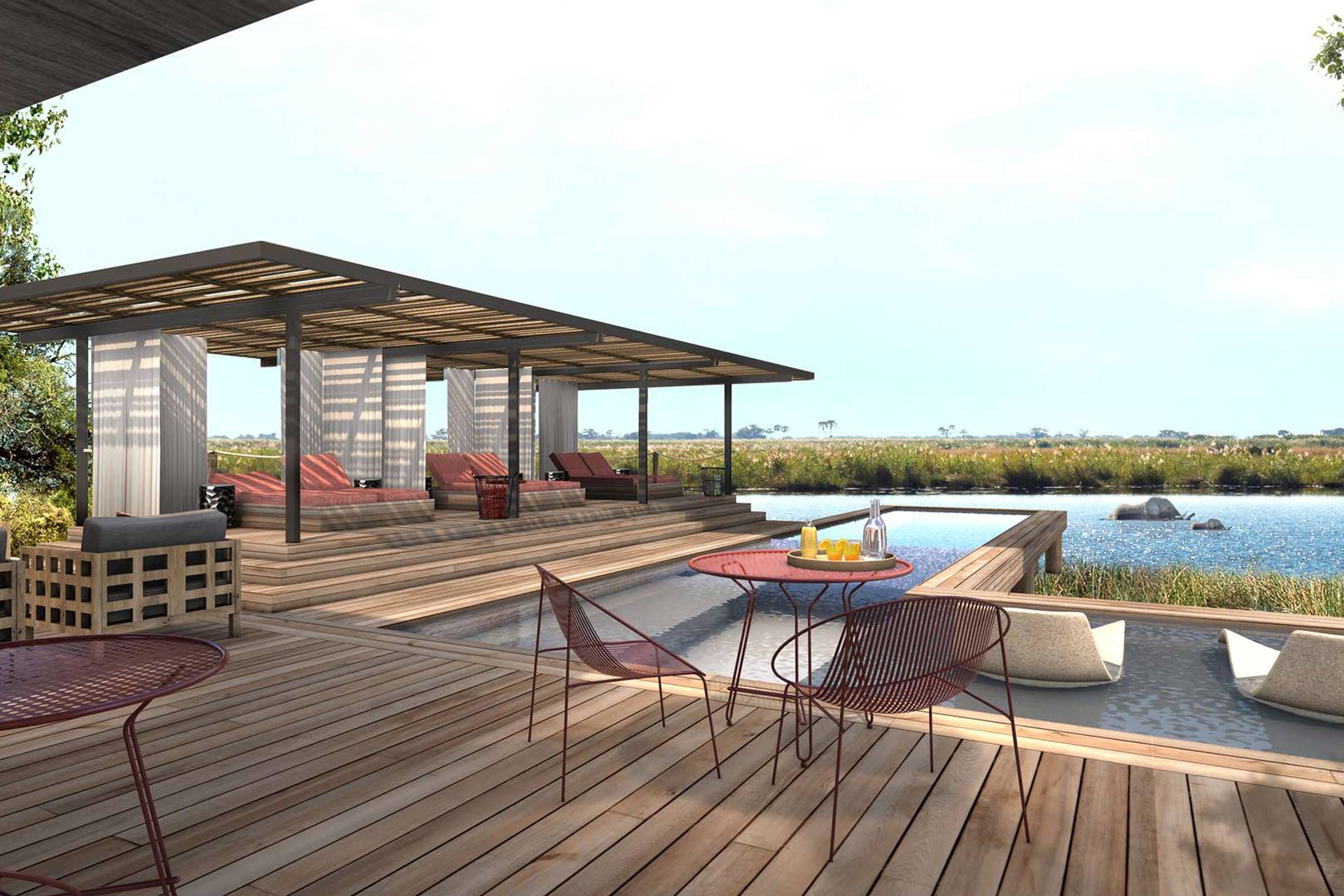Opening in the second half of 2020, Wilderness Safaris’ third-generation DumaTau camp will offer a sustainable menu that blends elements of Botswana heritage, community and nutrition. With an increase in locally sourced ingredients on the menu too, guests can expect to see a wide selection of deeply flavoured, fresh and appetising plates – all of which strike a balance between authenticity and modern inspiration.
“At DumaTau, the food experience will be a journey in itself, and we want our guests to feel truly indulged as they discover local ingredients and learn about this spectacular country,” says Freedom Nxele, Food Experience Manager for Wilderness Safaris Botswana’s Premier Camps. “When the camp reopens, our talented chefs will be ready to engage and serve our guests the most delectable meals – think chef interaction, cooking over coals and alfresco dining, with light-hearted conversations weaving in the sights and sounds of the day.”
Located in the 125,000-hectare Linyanti Wildlife Reserve, DumaTau is set within one of the best game-viewing areas in northern Botswana and forms the ideal location for dining outdoors. Whether this is be tucking into culturally-inspired meals during boma evenings, eating out on a barge on the Linyanti River, or taking advantage of the African sky over a romantic candlelit dinner, DumaTau’s new menu will be focused on bringing people together in the reserve’s awe-inspiring surroundings.
The camp will also increase its access to locally grown superfoods such as baobab fruit powder, Kalahari truffle, marula, ground nuts and moringa, which will be added to dishes including hot porridge, nutritional smoothies and giant steaming muffins. The chefs will use millet and sorghum to create a range of homemade pastas and artisanal breads too. With many repeat guests visiting DumaTau, the menu will still include a selection of its old favourites, from venison tagine with mini madombi, barley to gem squash risotto and beef seswaa tacos with tomato salsa. This also includes light meals such as corn, spring onion and peppadew samosas, and biltong croquettes with a sweet mustard sauce, as well as dessert classics including roasted naartjie malva pudding and milk tart slices.
“The use of local foods isn’t only an exploration of the cuisine, but an important contribution to the camp’s commitment to operating with a light carbon footprint. In this way, DumaTau decreases the complex logistics required for the transportation of items to this remote region,” Freedom continues. “Added to this, we have also been exploring smart ways to continue serving nutritious and delicious meals with less waste. It is important for us to ensure that our food journey is as sustainable as possible.”






